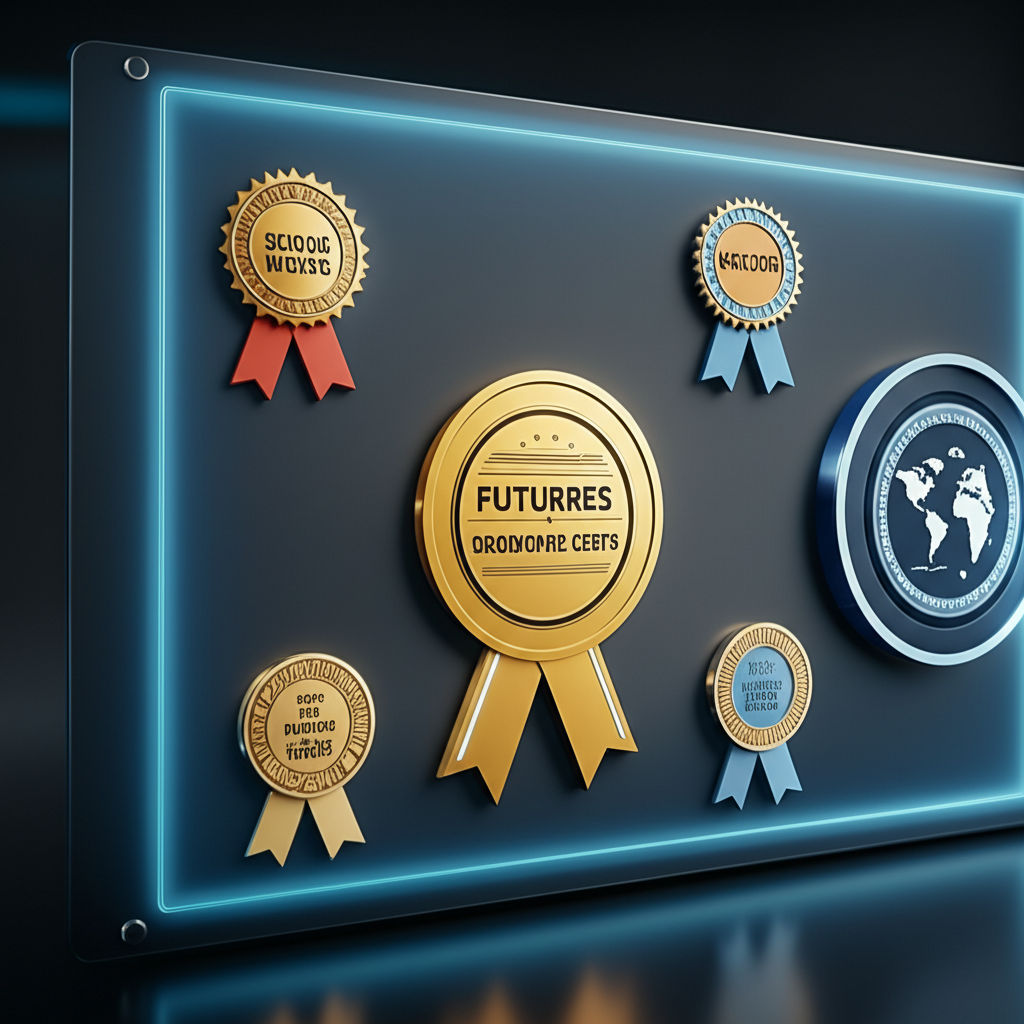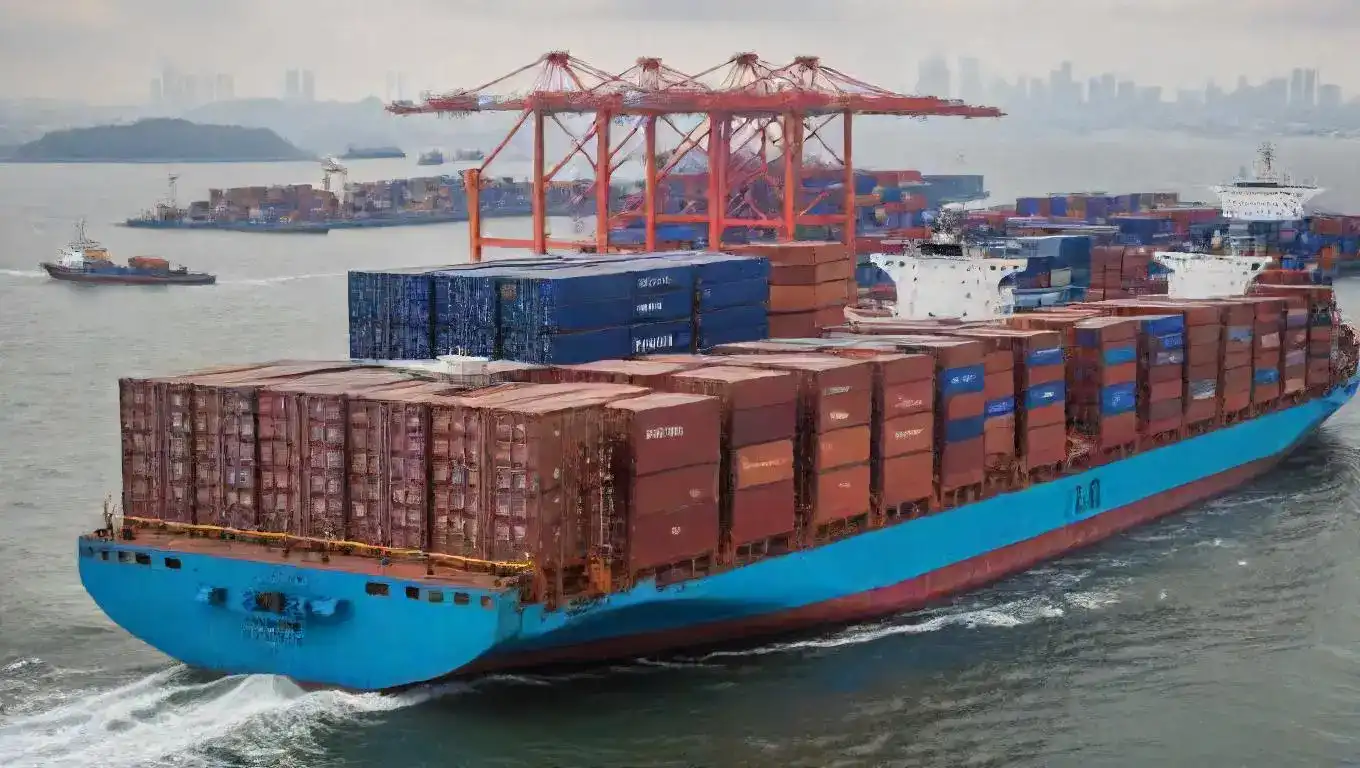Is Globalization Reversing? Economic Trends
Emily Willis

Photo: Is Globalization Reversing? Economic Trends
Is Globalization Reversing? Unpacking Key Economic Trends
For decades, the world has become increasingly interconnected, a phenomenon we broadly refer to as globalization. Goods, capital, people, and ideas have flowed across borders with unprecedented ease, knitting together a complex web of economic interdependence. This era brought immense benefits, fostering efficiency, innovation, and growth for many. However, in recent years, a palpable shift has emerged, prompting a critical question: Is globalization reversing, or is it merely transforming into something new?
This article delves into the intricate economic trends that are shaping the future of global interconnectedness. We'll explore the arguments for and against a reversal, examining the forces at play and what they mean for the global economy, businesses, and individuals.
The Rise and Evolution of Globalization
To understand where we might be headed, it's crucial to acknowledge globalization's journey. Post-World War II, the establishment of international institutions like the World Bank, IMF, and later the WTO, laid the groundwork for a more open global economy. The late 20th century, particularly after the fall of the Berlin Wall, saw an acceleration of this process, driven by technological advancements, reduced trade barriers, and the rise of multinational corporations.
Key economic indicators of this era of deep globalization included:
- Booming International Trade: Goods and services crossed borders at an exponential rate, leading to highly specialized global supply chains.
- Surge in Foreign Direct Investment (FDI): Companies invested heavily in operations worldwide, seeking new markets and lower production costs.
- Integrated Financial Markets: Capital flowed freely across continents, facilitating cross-border investments and lending.
- Offshoring and Outsourcing: Businesses moved production and services to countries with lower labor costs, optimizing efficiency.
This period of hyper-globalization prioritized efficiency and cost-cutting, often at the expense of resilience and local production.
Signs of a Potential "Slowbalization" or "Deglobalization"
While a complete reversal of globalization seems unlikely given the deeply intertwined nature of the modern world, there are undeniable signs of a slowdown or a reshaping of its trajectory. This phenomenon has been dubbed "slowbalization" or even "deglobalization" by some analysts. Several economic trends underpin this narrative:
The Return of Trade Protectionism
After decades of declining tariffs and trade barriers, the 2010s saw a resurgence of protectionist policies. The US-China trade war, for instance, introduced significant tariffs on a wide range of goods, disrupting established supply chains and forcing companies to re-evaluate their sourcing strategies. Beyond tariffs, non-tariff barriers, such as stricter import regulations, subsidies for domestic industries, and local content requirements, have also become more prevalent. This shift reflects a growing emphasis on national security, domestic job protection, and strategic industry development.
Reshoring and Nearshoring of Supply Chains
The COVID-19 pandemic exposed the fragility of highly optimized, geographically dispersed supply chains. Lockdowns, factory shutdowns, and logistics bottlenecks led to severe shortages of critical goods, from medical supplies to semiconductors. This experience, coupled with rising geopolitical tensions and the desire for greater control, has prompted many companies to consider bringing production closer to home (reshoring) or to neighboring countries (nearshoring). While a complete exodus from overseas manufacturing is impractical for many industries, the trend towards diversifying and localizing parts of the supply chain is significant.
Geopolitical Tensions and Economic Fragmentation
The geopolitical landscape has become increasingly volatile. Conflicts, diplomatic disputes, and ideological divergences are spilling over into the economic realm, influencing trade agreements, investment flows, and technological cooperation. Countries are increasingly wary of relying on potential adversaries for critical goods or technologies, leading to a push for "friend-shoring" – sourcing from geopolitically aligned nations. This fragmentation can lead to a less efficient, but potentially more secure, global economic system.
Technological Nationalism and Data Sovereignty
Technology has been a key enabler of globalization, but it's also becoming a battleground for national interests. Concerns over data privacy, cybersecurity, and the control of critical technologies (like 5G, AI, and semiconductors) have led to policies promoting technological self-sufficiency. Governments are investing heavily in domestic tech industries, imposing restrictions on foreign tech companies, and advocating for data to be stored and processed within national borders. This "tech nationalism" can impede the free flow of information and digital services, a cornerstone of modern globalization.
Shifting Global Value Chains
The traditional model of a linear global value chain, where different stages of production are spread across various countries to minimize costs, is evolving. Companies are now prioritizing resilience and risk mitigation alongside efficiency. This means building redundancies, diversifying suppliers, and sometimes accepting higher production costs for greater reliability. The focus is shifting from purely cost-driven decisions to a more balanced approach that considers geopolitical risk, environmental impact, and speed to market.
The Drive for Energy Transition and Local Production
The global push towards renewable energy and decarbonization is also influencing economic trends. As countries aim to reduce reliance on fossil fuels and build green economies, there's a growing emphasis on
Latest ✨
View Allsustainable living and provides practical tips for integrating eco-friendly practices into daily life. It emphasizes the benefits of reducing environmental impact, combating climate change, conserving resources, saving money, and living a healthier life.
Emily Willis
AI is no longer a futuristic concept, it is shaping our world at an unprecedented pace. In 2024 and beyond, AI trends are likely to dominate in various industries. Generative AI is expected to revolutionize content creation, design, and product development. In healthcare, AI will lead to personalized medicine, drug discovery acceleration, improved diagnostics, and remote patient monitoring.
Emily Willis
Future-proof your career with micro-credentials & digital badges. Gain targeted skills fast & stay relevant in a rapidly changing world.
Emily Willis
Unlock the potential of flexible school schedules! Understand benefits, challenges, types, and real-world examples for modern education.
Emily Willis
Business
View All
June 9, 2025
Craft a Winning Pitch DeckCraft a winning pitch deck! Learn to transform your vision into a compelling presentation that captivates investors & unlocks opportunities.
Emily Willis

June 8, 2025
Gain Competitive Edge in Any MarketMaster competitive advantage! Discover actionable strategies for business growth, market leadership, and differentiation in any market.
Emily Willis

June 8, 2025
Handle Complaints EffectivelyMaster the art of handling complaints effectively. Learn the psychology, actionable steps, and how to turn feedback into opportunities for growth and stronger r...
Emily Willis
Economy
View AllUncover the dynamic relationship between tariffs and global trade patterns. Explore how tariff changes reshape trade flows, impact consumers and businesses, and drive strategic adaptations in supply chains and markets. Discover insights from real-world cases and learn strategies for businesses to thrive in this evolving landscape.
Read MoreFiscal policy: The government's powerful tool of taxes & spending that shapes the economy, jobs, and your daily life. Essential citizen guide.
Read MoreBoost your business profitability! Discover how cost analysis empowers informed decisions, optimizes spending, and fuels sustainable growth.
Read MoreEntertainment
View All
August 5, 2024
Classic Films: Timeless Masterpieces in the Age of StreamingClassic films may seem outdated in today's world of instant gratification and endless streaming options, but they offer enduring stories, masterful storytelling, historical insights, technical innovation, and artistic value that surpass modern offerings. While classic films face challenges such as accessibility and pacing, there are ways to overcome these obstacles, such as using streaming services, visiting local libraries, attending film festivals, and utilizing online resources.
Emily Willis

August 4, 2024
The Evolution of Streaming Services Such as Netflix, Disney+, Hulu, and the Implications for the Traditional Entertainment IndustryThe rise of streaming services has revolutionized the entertainment industry, offering on-demand access to a vast library of content through internet-connected devices. Platforms like Netflix, Disney+, and Hulu have diversified their content libraries, reshaped consumer behavior, and challenged traditional distribution models. Technological advancements have enhanced streaming experiences, while economic and cultural implications have led to global market expansion and increased investment in original content production. The future of the streaming industry will be shaped by competition, convergence of media and technology, and the need for adaptation to changing consumer preferences. Embracing digital transformation and strategic partnerships will be crucial for stakeholders in navigating the evolving landscape of modern entertainment.
Emily Willis

August 4, 2024
Virtual Music Concerts: The Future of Live Performance?The music industry has seen significant changes in recent years, with virtual music concerts becoming a popular trend, especially due to the impact of the COVID-19 pandemic. Technological advancements have made virtual concerts more accessible and cost-effective, while also reducing the environmental impact of live events. However, challenges such as technical issues and the lack of physical presence remain. The future of virtual concerts may involve hybrid models that combine virtual and physical experiences, as well as continued technological innovation to enhance the quality of virtual performances. Building a sense of community and engagement will also be crucial for the success of virtual concerts moving forward.
Emily Willis
Health
View Allsleep for physical and mental well-being, discussing the benefits of sleep such as physical restoration, brain function, emotional regulation, concentration, and reduced risk of chronic diseases. It explains the different stages of the sleep cycle and provides guidelines for how much sleep individuals of different ages need.
Emily Willis
Heart disease is a leading cause of death globally, but early detection and prevention strategies can reduce its impact. This article discusses the importance of early detection, common risk factors, preventive measures, and lifestyle changes for heart health. Understanding heart disease, recognizing symptoms, and undergoing regular screenings are crucial. Common risk factors include high blood pressure, high cholesterol, diabetes, smoking, obesity, physical inactivity, and family history. Symptoms of heart disease include chest pain, shortness of breath, fatigue, irregular heartbeat, and swelling. Diagnostic tests and screenings include blood pressure measurement, cholesterol screening, blood glucose test, ECG, stress test, and imaging tests. Preventive measures include adopting a heart-healthy diet, regular physical activity, quitting smoking, managing stress, maintaining a healthy weight, and limiting alcohol consumption. Medications and treatment options may be necessary for individuals at high risk or diagnosed with heart disease.
Emily Willis
The healthcare landscape is being transformed by technological advancements, with telehealth and remote care providing convenient access to healthcare services. Artificial intelligence is revolutionizing diagnostics, personalized medicine, and drug discovery. Wearable technology is empowering patients to take control of their health.
Emily Willis
Trending 🔥
View All
1
2
3
6
7
8
9
Sports
View AllAugust 4, 2024
The Importance of Mental Training and Psychological Strategies in Helping Athletes Reach Their Peak Performance on the Field
Read MoreTechnology
View All
August 4, 2024
Latest Trends in Mobile Application Development
latest trends in mobile application development for 2024. These trends include the integration of 5G technology, artificial intelligence and machine learning, Internet of Things (IoT), augmented reality (AR) and virtual reality (VR), cross-platform development, mobile wallets and payment gateways, progressive web apps (PWAs), enhanced app security, voice search and integration, and sustainability and green mobile apps.

August 5, 2024
Challenges and Barriers in Adopting Blockchain Technology
Blockchain technology has the potential to revolutionize industries with its decentralized and transparent nature, but widespread adoption faces challenges such as scalability issues, interoperability, security concerns, regulatory uncertainty, lack of standards, cost and resource intensiveness, and user experience and education.

August 5, 2024
Top Skills Every Junior Software Developer Should Master in 2024
Meta Description: Discover the top skills junior software developers need to master in 2024 to excel in their careers. From coding languages to soft skills, this blog reveals the secrets to staying ahead in the dynamic world of software development.

August 4, 2024
The Metaverse: A Virtual World with Endless Possibilities
metaverse is a rapidly evolving concept that offers a network of interconnected 3D virtual spaces accessed through technologies like VR and AR.





















